Health
-

6 keys to a long, healthy life (ice cream included)
Also, why reading Ben Franklin beats climbing Mount Everest
-

Six cancers rising faster in younger adults than older ones
Large new global study fuels growing concern over trend of increases in several types

-

What’s next for GLP-1s?
Scientists eye new treatment targets for popular weight-loss drugs, from heart failure to addiction
-

Pricey blockbuster GLP-1s are costing users — and most of the rest of us, too
Health insurers are passing along cost for coverage in form of higher rates across the board, policy researcher says
-

Drinking 2-3 cups of coffee a day tied to lower dementia risk
Caffeinated tea also found to slow cognitive decline in study

-

New AI tool predicts brain age, dementia risk, cancer survival
Unlike other AI models, BrainIAC needs limited data to ID key neurological health indicators

-
Toxic chemicals linked to brain disorders in children
Toxic chemicals may be triggering recent increases in neurodevelopmental disabilities among children — such as autism, attention-deficit hyperactivity disorder, and dyslexia — according to a new study. The researchers say a new global prevention strategy to control the use of these substances is urgently needed.

-
Evolution in real time
After 26 years of workdays spent watching bacteria multiply, Richard Lenski has learned that evolution doesn’t always occur in steps so slow and steady that change can’t be observed.

-
At the Arboretum, an unquiet winter
Despite the dormant appearance of the trees, the Arnold Arboretum isn’t waiting for spring, as pruning, mowing, research, and planning continue to move ahead at full speed.

-
The threat from superbugs
Hospital stewardship programs, community education, and legal changes to allow pharmaceutical companies to profit longer from new antibiotics are among reforms that experts suggest to fight drug-resistant bacteria.
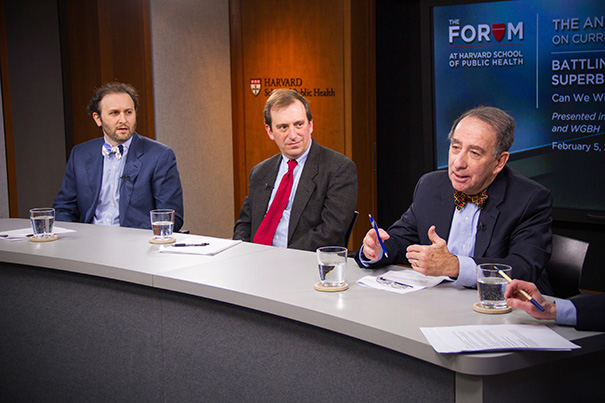
-
Nutritional supplement slows onset of Huntington’s
The first clinical trial of a drug intended to delay the onset of symptoms of Huntington’s disease (HD) reveals that high-dose treatment with the nutritional supplement creatine was safe and well tolerated by most study participants. Neuroimaging also showed a treatment-associated slowing of regional brain atrophy, evidence that creatine might slow the progression of presymptomatic HD.
-
Study ties fetal sex to milk production
A new study offers the first evidence that fetal sex can affect the amount of milk cows produce, a finding that could have major economic implications for dairy farmers.

-
‘On’ switches for cells
Scientists at Harvard have identified a previously unknown embryonic signal, dubbed Toddler, that instructs cells to move and reorganize themselves, through a process known as gastrulation, into three layers.
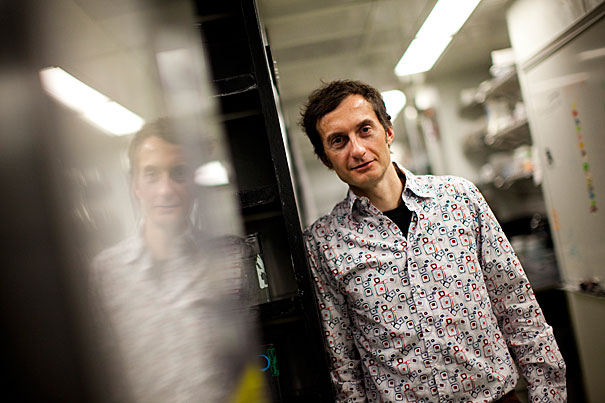
-
Neanderthals’ DNA legacy linked to modern ailments
Remnants of Neanderthal DNA in modern humans are associated with genes affecting type 2 diabetes, Crohn’s disease, lupus, biliary cirrhosis, and smoking behavior. They also concentrate in genes that influence skin and hair characteristics. At the same time, Neanderthal DNA is conspicuously low in regions of the X chromosome and testes-specific genes.

-
Researchers create embryonic stem cells without embryo
Researchers have created embryonic stem cells without an embryo. This discovery of a novel reprogramming method of adult cells, without introducing external genetic material, could dramatically shift stem cell research.
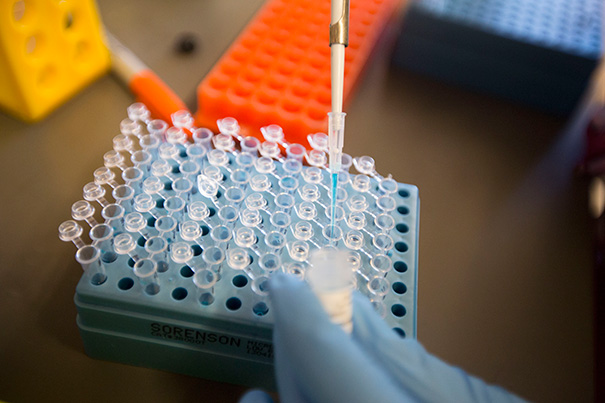
-
In search of nature’s camouflage
Cuttlefish, the “chameleon of the sea,” may offer researchers a model for bio-inspired human camouflage and color-changing products, some of which could be invaluable in wartime.

-
Flower power
Four creations are back on display at the Harvard Museum of Natural History’s Glass Flowers gallery after a long absence.

-
Broad’s landmark study discovers new cancer genes
A landmark study across many cancer types reveals that the universe of cancer mutations is much bigger than previously thought. By analyzing the genomes of thousands of patients’ tumors, a Broad Institute-led research team has discovered enough new cancer genes to expand the list by 25 percent.
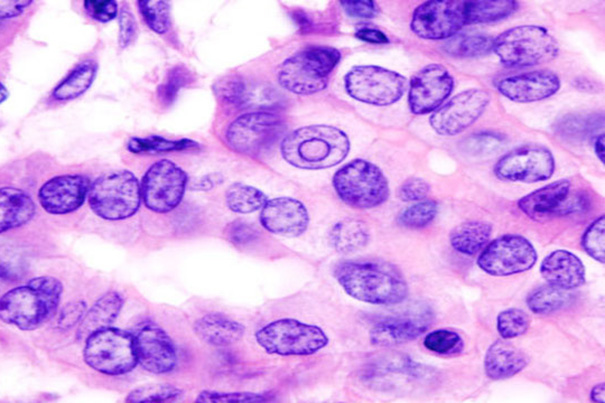
-
Some secrets of longevity
The average life expectancy in the United States has fallen behind that of other industrialized nations as the American income gap has widened. Also, particular health habits, including weight control, nutrition, and exercise, clearly influence the effects aging among segments of the U.S. population.
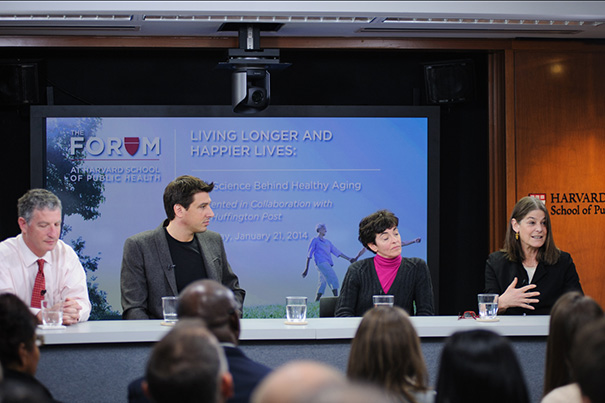
-
A splash with the spleen
A group of Harvard Medical School students is using the viral success of tongue-in-cheek video on the spleen to promote science education, launching a contest for younger students to make organ-themed music videos.

-
‘Junk?’ Not so fast
Research by Harvard Stem Cell Institute scientists shows that much lincRNA, which had been generally believed useless, plays an important role in the genome.
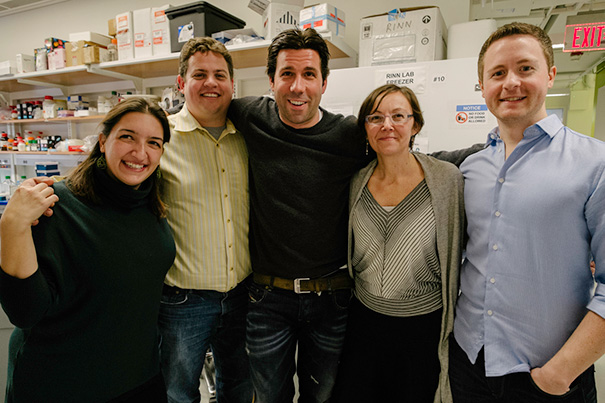
-
Vitamin D could slow MS progression
For patients in the early stages of multiple sclerosis (MS), low levels of vitamin D were found to strongly predict disease severity and hasten its progression, according to a new study led by Harvard School of Public Health (HSPH) investigators in collaboration with Bayer HealthCare.

-
Inconsistent? Good
Though variability is often portrayed as a flaw to be overcome, Harvard researchers now say that, in motor function, it is a key feature of the nervous system that helps promote better or more successful ways to perform a particular action.
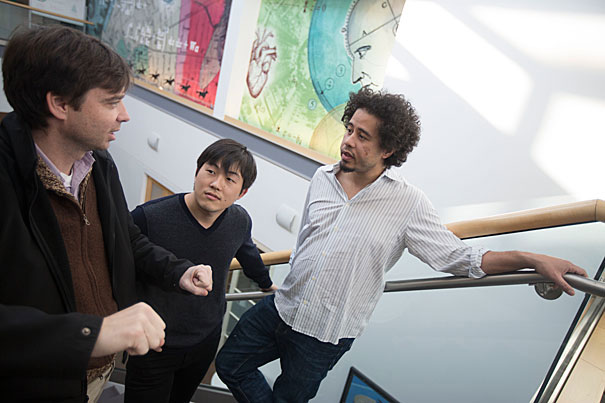
-
‘Beige’ cells key to healthy fat
“Beige fat” cells found in healthy subcutaneous fat in mice play a critical role in protecting the body against the disease risks of obesity, report Harvard researchers at the Dana-Farber Cancer Institute, who say their study findings may have implications for therapy of obesity-related illness in humans.
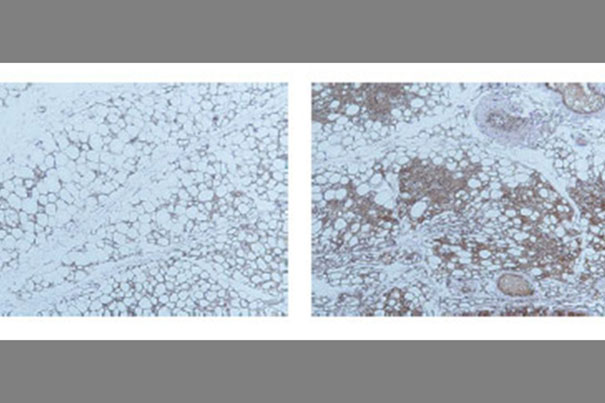
-
Something doesn’t smell right
Harvard scientists say they’re closer to unraveling one of the most basic questions in neuroscience — how the brain encodes likes and dislikes — with the discovery of the first receptors in any species evolved to detect cadaverine and putrescine, two of the chemical byproducts responsible for the distinctive — and to most creatures repulsive — smell of rotting flesh.
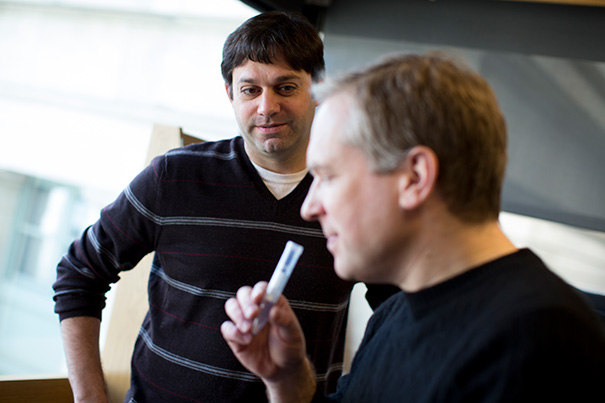
-
Fin to limb
New research brings scientists closer to unraveling one of the longest-standing questions in evolutionary biology — whether limbs, particularly hind limbs, evolved before or after early vertebrates left the oceans for life on land.
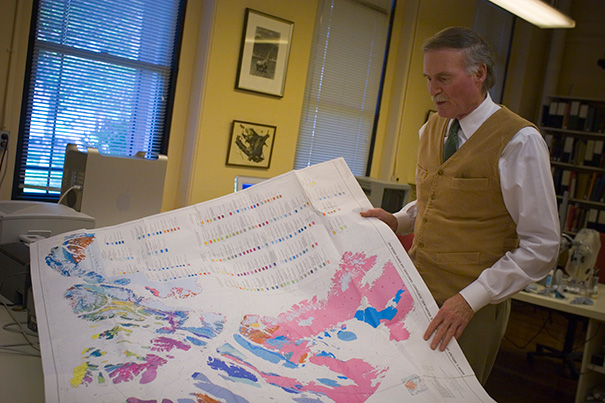
-
Discovering where HIV persists in spite of treatment
HIV antiviral therapy lets infected people live relatively healthy lives for many years, but the virus doesn’t go away completely. If treatment stops, the virus multiplies again from hidden reservoirs in the body. Researchers may have found HIV’s viral hiding place — in a small group of recently identified T cells with stem cell-like properties.
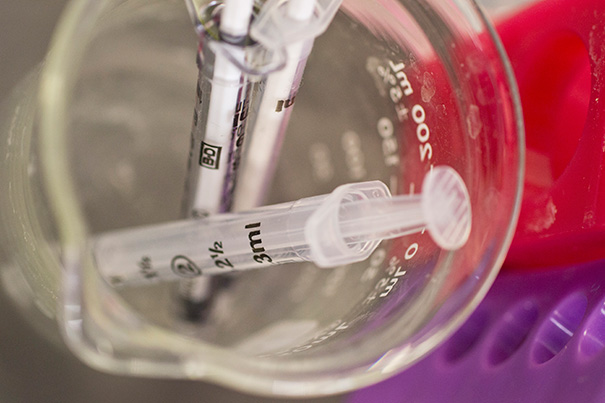
-
Bio-inspired glue keeps hearts securely sealed
The waterproof, light-activated glue developed by researchers at Harvard-affiliated Brigham and Women’s Hospital and Children’s Hospital Boston and their colleagues at MIT can successfully secure biodegradable patches to seal holes in a beating heart.
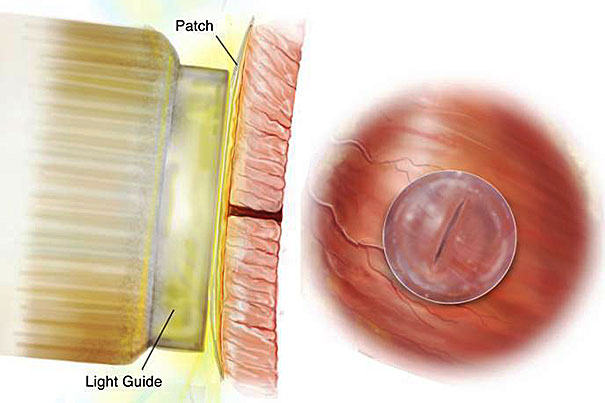
-
Color-coded labels, healthier food
Using color-coded labels to mark healthier foods and then displaying them more prominently appears to have prompted customers to make more healthful long-term dining choices in their large hospital cafeteria, according to a report from Harvard-affiliated Massachusetts General Hospital

-
Fighting disease on a global scale
The idea that the wave of diabetes, heart disease, and cancer breaking over the world is largely the result of wealth and inactivity is not only wrong, it’s counterproductive, says a Harvard research fellow who recently founded a nonprofit organization to fight disease.

-
Ludwig Cancer Research awards HMS $90M
Ludwig Cancer Research, on behalf of its founder, Daniel K. Ludwig, has given Harvard Medical School $90 million to spur innovative scientific inquiry and discovery. According to the Ludwig announcement, this new financial support is among the largest private gifts ever for cancer research.

-
Your gut’s what you eat, too
A new Harvard study shows that, in as little as a day, diet can alter the population of microbes in the gut – particularly those that tolerate bile – as well as the types of genes expressed by gut bacteria.
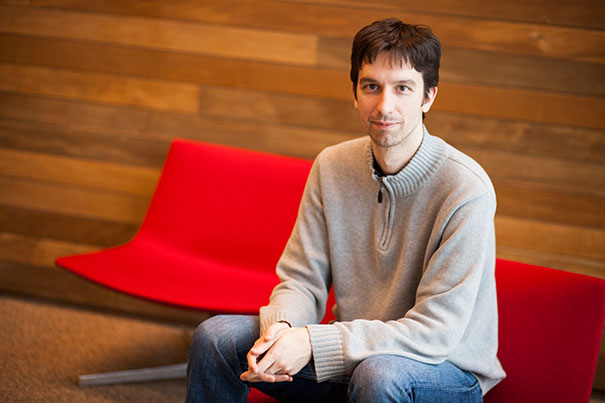
-
Saving tortoises by a hair
Five species of giant, long-lived Galapagos tortoises are thought to have gone extinct, but recent DNA analysis shows that some may survive on other islands in the archipelago, according to work by Michael Russello, Harvard Hrdy Fellow in Conservation Biology.
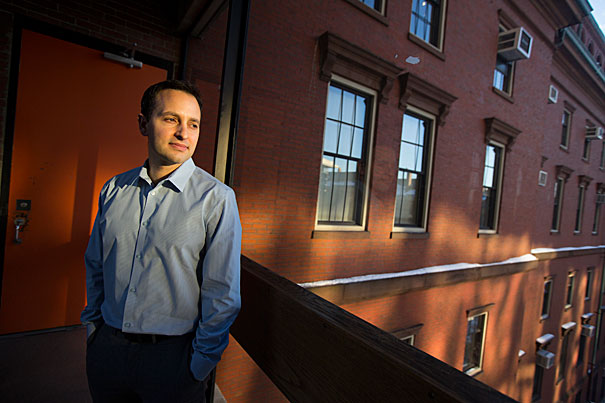
-
Measuring life’s tugs and nudges
Harvard scientists have devised the first method to measure the push and pull of cells as embryonic tissue develops. The cells’ tiny forces are measured in 3-D tissues and living embryos.
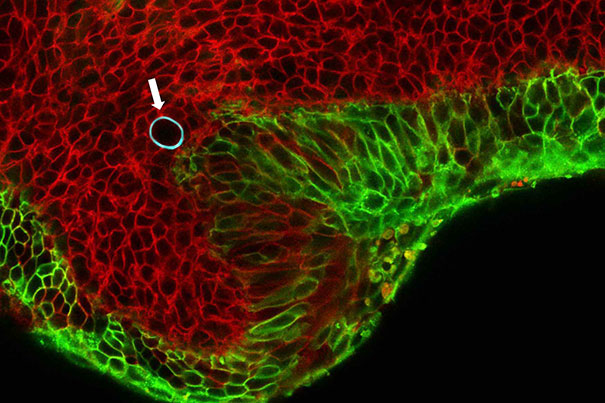
-
Pinpointing the higher cost of a healthy diet
The healthiest diets cost about $1.50 more per day than the least healthy diets, according to new research from Harvard School of Public Health. The finding is based on the most comprehensive examination to date comparing prices of healthy foods and diet patterns against less healthy ones.

-
Other unknowns in health care rollout
Politics and change are the only sure things ahead in the continued implementation of the Affordable Care Act, according to a panel of experts at the Harvard School of Public Health.


